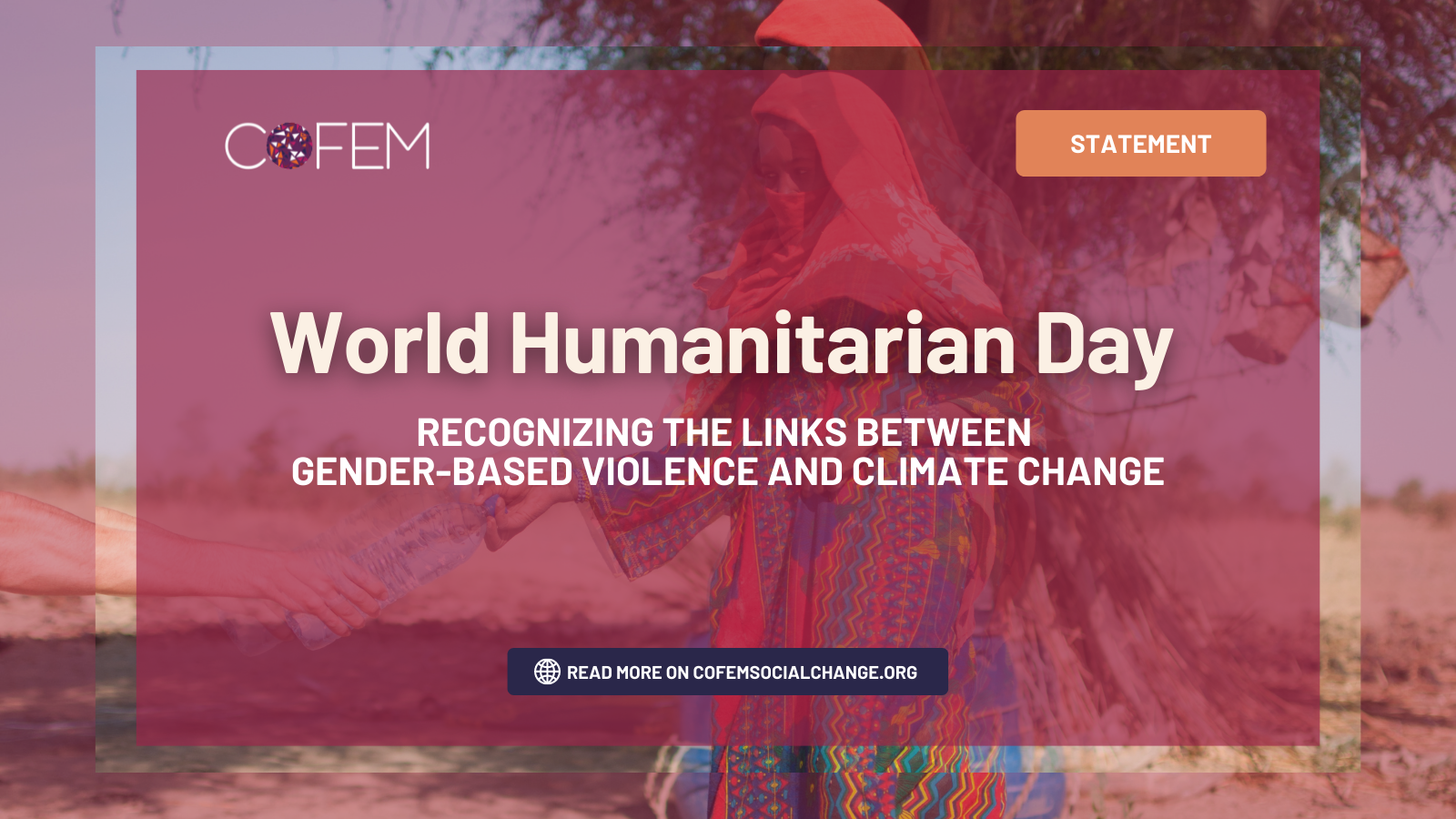Climate change is categorically ‘code red for humanity’. As #thehumanrace struggles to respond to climate related disasters, it cannot afford to ignore the impact of climate change on women and girls, including trans, indigenous, and other women and girls from historically and structurally excluded groups. While climate change threatens the entirety of #thehumanrace, not all of us are impacted equally.
Region specific climate contributors are exposing women and girls to different risks across the world and fueling patriarchal norms and structures which propel gender-based violence. In Asia-Pacific, slow-onset disasters leading to the destruction of livelihoods have increased human trafficking often trapping women in sexual slavery. Climate change propelled disasters that have led to the escalation of child marriages in South Asia. In sub-Saharan Africa, drought has been associated with an increase in intimate partner violence (IPV). Across the world, women environmental defenders resisting forces that accelerate climate change face harassment and abuse.
This World Humanitarian Day, we must remember that meaningful progress on tackling climate change and the impact of related disasters is not possible without addressing its impact on women and girls in all their diversity. Those working at the humanitarian and development nexus must pay greater attention to and dedicate resources to better understanding the impact of climate-related disasters on women and girls. The GBV community must ensure that women and girls are not left behind and are part of global, regional and national policies and systems on climate change. Women’s rights organizations and networks must be listened to if climate adaptation policies and global humanitarian efforts are to save #thehumanrace.
